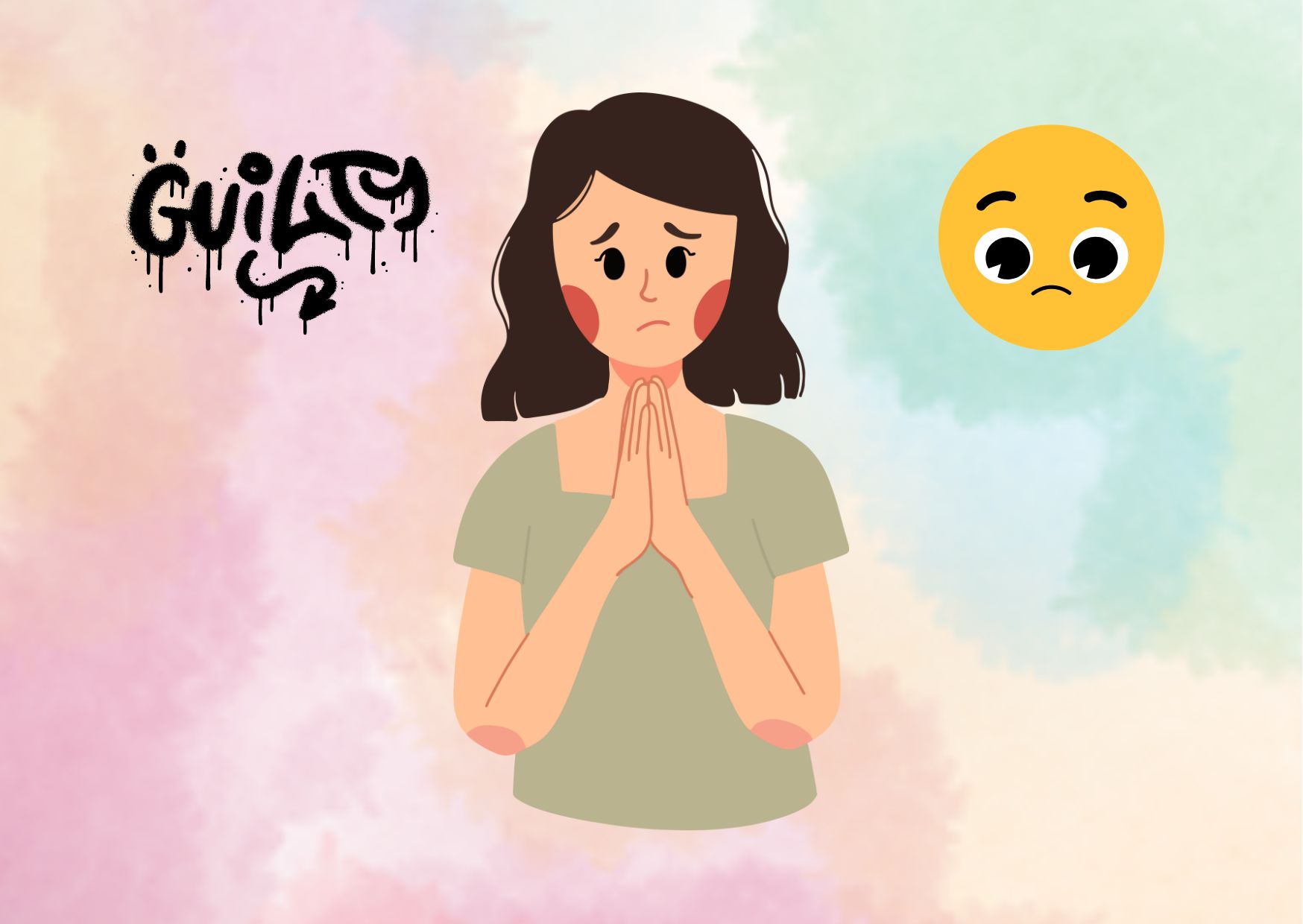- Trauma and Abuse: Individuals who have experienced trauma or abuse, whether in childhood or adulthood, may carry a deep sense of guilt that is often misplaced. They may blame themselves for the actions of others or feel guilty for not being able to prevent or escape harmful situations.
- Perfectionism and High Self-Expectations: Those who hold themselves to exceptionally high standards and struggle with perfectionism may be more prone to developing a guilt complex. Any perceived mistake or failure can trigger intense feelings of guilt and self-blame.
Effects of a Guilt Complex
A guilt complex can have far-reaching effects on various aspects of our lives, including our mental health, relationships, and overall quality of life. Some common effects of a guilt complex include:
- Anxiety and Depression: Excessive guilt is often associated with symptoms of anxiety and depression. The constant self-blame and rumination can contribute to heightened feelings of worry, sadness, and hopelessness.
- Low Self-Esteem: Feeling guilty can erode our self-esteem and self-worth. Constantly feeling at fault and believing we are inherently flawed can lead to a negative self-image and a diminished sense of confidence.
- Strained Relationships: Feeling guilty can strain our relationships with others. We may become overly critical of ourselves and project our guilt onto those around us, leading to distance and misunderstandings.
- Perfectionism and Fear of Failure: A guilt complex often fuels perfectionistic tendencies. The fear of making mistakes and the need to avoid guilt can be paralyzing, hindering personal growth and preventing us from taking healthy risks.
Suggestion for read: Guilt Complex
Managing Guilt and Cultivating Emotional Well-being
While overcoming a guilt complex may require professional support, there are several strategies that can help individuals understand and manage their guilt more effectively. Here are some practical steps to consider:
- Practice Self-Compassion and Forgiveness
Treating ourselves with kindness and compassion is essential when dealing with feeling guilty. Instead of berating ourselves for our perceived shortcomings, we can practice self-forgiveness and acknowledge that making mistakes is a natural part of being human. Cultivating self-compassion allows us to learn from our mistakes, make amends when necessary, and move forward with self-acceptance.
- Challenge Negative Thoughts and Cognitive Distortions
Guilt often arises from distorted thinking patterns and irrational beliefs. By challenging and reframing negative thoughts, we can gain a more balanced perspective on our actions and their consequences. Cognitive-behavioral therapy (CBT) techniques, such as thought restructuring and cognitive reframing, can be helpful in identifying and changing unhelpful thought patterns.
- Seek Support and Professional Help
If feelings of guilt persist and significantly impact your daily life and well-being, seeking professional help from a therapist or counselor can be beneficial. They can provide guidance, support, and evidence-based interventions to help you navigate and overcome your guilt complex.
- Practice Mindfulness and Self-Reflection
Engaging in mindfulness practices, such as meditation and self-reflection, can help us cultivate awareness of our emotions without judgment. Mindfulness allows us to observe our guilt without becoming overwhelmed by it and helps us develop a greater sense of acceptance and clarity.
- Set Realistic Expectations and Boundaries
Setting realistic expectations for ourselves and others is essential in managing guilt. Recognize that perfection is unattainable and that mistakes are part of the learning process. Establish healthy boundaries to protect your well-being and prevent excessive guilt from taking over your life.
- Focus on Personal Growth and Learning
Instead of dwelling on past mistakes, channel your energy into personal growth and learning. Use your guilt as a catalyst for positive change, making amends when necessary and committing to making better choices in the future.
- Engage in Self-Care and Positive Activities
Taking care of your physical and emotional well-being is crucial in managing guilt. Engage in activities that bring you joy and fulfillment, practice self-care routines, and surround yourself with supportive and understanding individuals.
- Practice Gratitude and Appreciation
Cultivating a sense of gratitude can help shift your focus from guilt to appreciation. Take time to reflect on the positive aspects of your life and express gratitude for the opportunities and experiences that shape you.
- Challenge Unrealistic Guilt Triggers
Identify and challenge the triggers that contribute to your excessive guilt. Evaluate whether the guilt you feel is justified or if it is based on unrealistic expectations or external pressures. Recognize that you cannot control everything and that it is okay to prioritize your own well-being.
- Embrace Self-Reflection and Growth Mindset
Regular self-reflection can help you gain insight into your feeling guilty and identify patterns or behaviors that contribute to them. Embrace a growth mindset, understanding that mistakes are opportunities for growth and change.
- Utilize Online Counselling and Therapy Resources
If you find it challenging to access traditional in-person therapy, consider utilizing online counselling and therapy resources. Platforms like Inquire Talk provide convenient and accessible support for individuals seeking help with their mental health and well-being.
- Seek Social Support
Building a network of supportive friends, family, or support groups can help alleviate feelings of guilt. Sharing your experiences and emotions with others who can empathize and offer guidance can provide a sense of validation and reassurance.
Remember, managing a guilt complex takes time and patience. Be gentle with yourself as you navigate your emotions and seek the support you need to heal and grow. By understanding the root causes of guilt, practicing self-compassion, and engaging in healthy coping strategies, you can effectively manage your guilt and cultivate emotional well-being.
Here are few certified therapists who you can get in touch and book a therapy session with:
Hal M.
Ioanna Matte
Dr Simon Cassar
